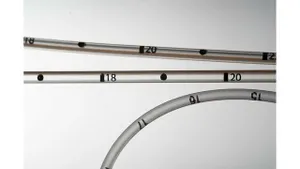Change in regulation would require treatment of wooden pallets
Wooden pallets that previously went between the U.S. and Canada without being heat-treated to kill insects or larvae could soon be required to undergo such treatments, potentially shifting the pallet market to other materials, including plastics. A proposal from the U.S. Department of Agriculture, Animal and Plant Health Inspection Service (APHIS) would remove the exemption from the International Standard for Phytosanitary Measures (ISPM) 15 treatment of wood-packaging material moving between Canada and the U.S.
March 17, 2011
(APHIS) would remove the exemption from the International Standard for Phytosanitary Measures (ISPM) 15 treatment of wood-packaging material moving between Canada and the U.S. beginning as soon as this summer.
Gary Sharon, VP, Litco International (Vienna, OH), a maker of presswood pallets that would remain exempt says the potential change could be quite disruptive. "If adopted, the proposal will have a significant impact on shipments on pallets," Sharon said. According to Sharon, during the 'informed compliance' period, if insect infestation is found on a wooden pallet, loads will either be refused or treatment will be required prior to entering. "For companies shipping back and forth between Canada and the U.S., now is the time to convert to ISPM 15 approved export pallets and other packaging to avoid unnecessary costs and delays."
On February 14, the Canadian Food Inspection Agency (CFIA) and APHIS said they were moving forward to remove the current exemption for wood packaging being shipped between the two countries per ISPM 15. In a release, the agency said, "This action is necessary to prevent the introduction of new forest pests, as well as slow the spread of forest pests already established in North America."
Makers of presswood pallets are seizing on the potential opportunity, noting that their product is not regarded as wood, which is affected by ISPM 15 regulations. They also note that presswood pallets do not require International Plant Protection Convention (IPPC) marking; heat or chemical treatment; or phytosanitary certification.
Presswood pallets are molded from dried wood fiber under very high pressures and temperatures. This classifies them as particle board or processed wood, which is exempt, since the ISPM 15 regulations only cover raw timber.
The plastic and wooden pallet industry have been at odds for some time, with plastic pallet manufacturer iGPS suing the National Wooden Pallet and Container Assn. (NWPCA) over a press release the latter issued claiming it amounted to unfair competition, business disparagement, defamation, and harm to its business.
In a statement to PlasticsToday, Bob Moore, iGPS chairman, lauded the proposal. "[ISPM 15]...is a logical response to one of the inherent problems associated with wood pallets, specifically insect infestation," Moore said. "These infestations have led to the loss or quarantine of tens of millions of trees in the U.S. and Canada. "
iGPS has also been supporting passage of the new Food Safety Modernization Act, saying that in addition to monitoring food safety during manufacture, that proposed law would also focus on the risk during transportation. The company also felt that food safety bill will help ensure "that the nation will utilize the best technologies that are available to better track and trace the distribution of food products", a reference to its inclusion of RFID technology.
About the Author(s)
You May Also Like


